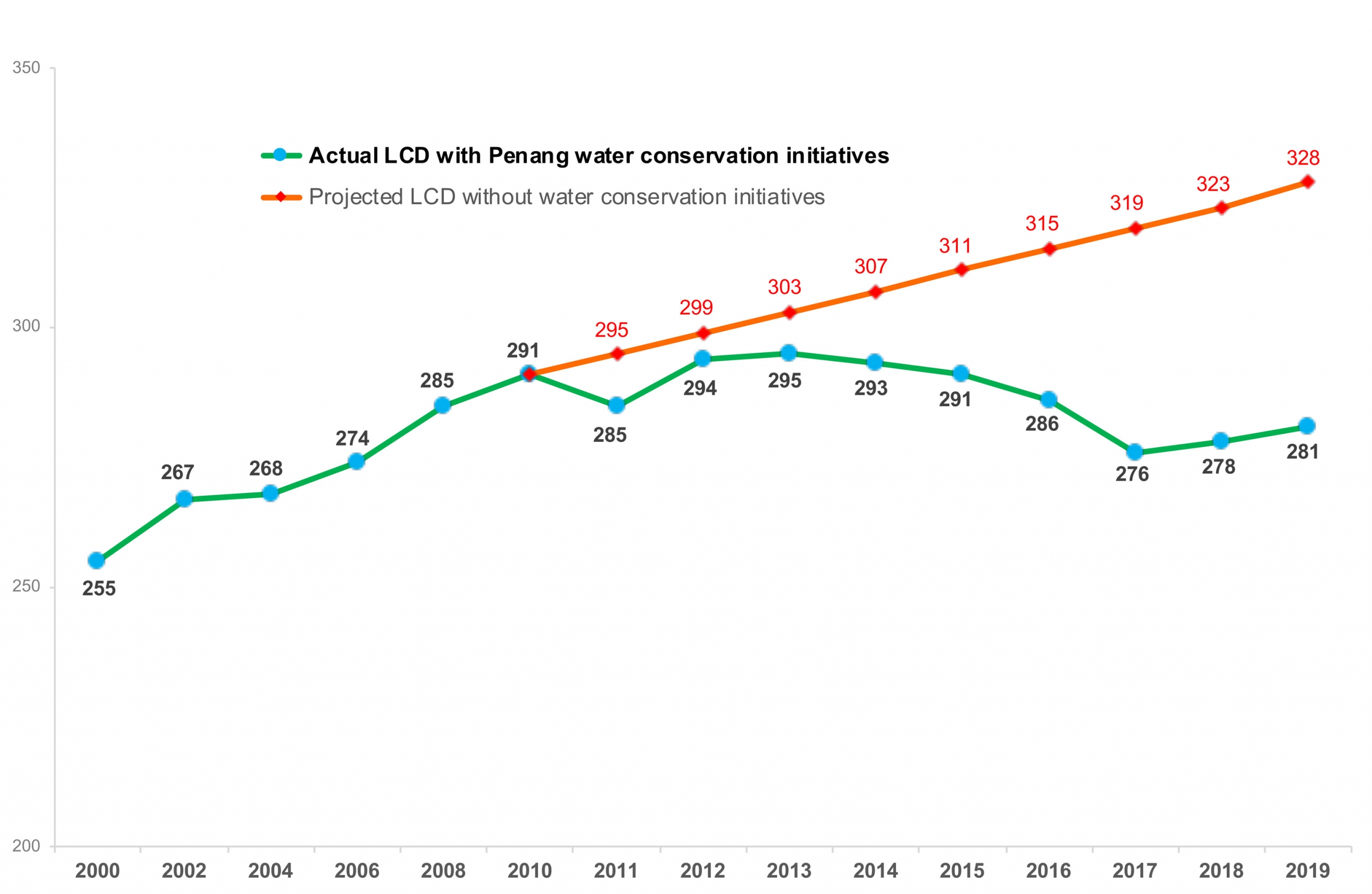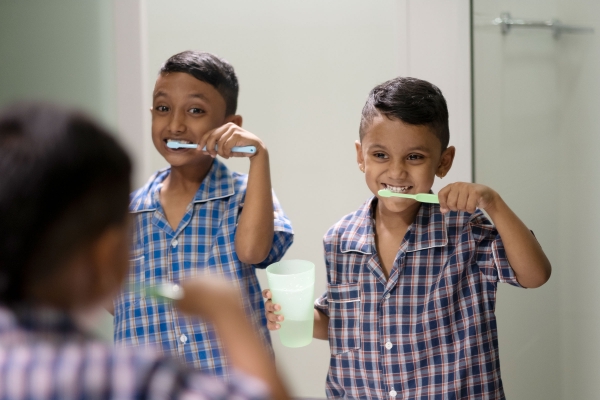Since 1999, the Penang State Government and PBAPP have implemented the following key initiatives to promote water awareness and encourage water conservation in Penang because it is a water-stressed state with very limited raw water resources.

These initiatives include:
1999
2009
2010
2013
2017
2018
2020
The chart below outlines the key results achieved:

If left unchecked from 2010, per capita domestic consumption in Penang would have potentially reached 328 LCD in 2019. The introduction of the initial WCS, together with the implementation of other proactive water awareness and conservation initiatives, helped to "cap" actual per capita domestic consumption to 281 LCD in 2019.
The figure for 2020 was 299 LCD but it should be borne in mind that Malaysia's Movement Control Orders (MCOs) compelled more Penangites to consume higher volumes of water at home. Nevertheless, it should be noted that the national average was 240 LCD in 2020.
PBAPP's experience over the past 21 years have shown that domestic water conservation cannot be effectively "promoted" in Penang without raising the value of water because the existing average domestic water tariff for the first 35,000 litres per month is "too low" at RM0.32 per 1,000 litres.
 For about 70% of Penang's 558,721 domestic water consumers, the water bill is RM22.60 for every 2 months (or RM11.30 per month) as at May 2021.
For about 70% of Penang's 558,721 domestic water consumers, the water bill is RM22.60 for every 2 months (or RM11.30 per month) as at May 2021.
As such, they tend to focus more on conserving electricity, fuel, Internet, mobile phone and satellite TV channel subscriptions because such prudent practices would save considerably more money for a household.
There has been no incident of water rationing in Penang since PBAPP was corporatised in 1999.
For about 70% of Penang's 558,721 domestic water consumers, the water bill is RM22.60 for every 2 months (or RM11.30 per month) as at May 2021.
As such, they tend to focus more on conserving electricity, fuel, Internet, mobile phone and satellite TV channel subscriptions because such prudent practices would save considerably more money for a household.
There has been no incident of water rationing in Penang since PBAPP was corporatised in 1999. Having not experienced the indignities of water rationing, generations of Penangites have come to regard good daily water supply as a given, and not a privilege. In reality, Penang is a water-stressed state, and its water stress level will continue to escalate until additional key water supply projects are implemented to mitigate its water risks.
PBAPP is awaiting Federal Government approval for a 2019 water tariff review application submitted to the National Water Services Commission (SPAN), at the behest of SPAN. It is hoped that new water tariffs will convince more Penangites to pay more attention to water conservation and play constructive roles in support of sustainable water supply for Penang in the 21st Century. There is no good or rational reason why Penangites cannot reduce their per capita domestic consumption to the level of the national average.
 For about 70% of Penang's 558,721 domestic water consumers, the water bill is RM22.60 for every 2 months (or RM11.30 per month) as at May 2021.
For about 70% of Penang's 558,721 domestic water consumers, the water bill is RM22.60 for every 2 months (or RM11.30 per month) as at May 2021.
As such, they tend to focus more on conserving electricity, fuel, Internet, mobile phone and satellite TV channel subscriptions because such prudent practices would save considerably more money for a household.
There has been no incident of water rationing in Penang since PBAPP was corporatised in 1999.
For about 70% of Penang's 558,721 domestic water consumers, the water bill is RM22.60 for every 2 months (or RM11.30 per month) as at May 2021.
As such, they tend to focus more on conserving electricity, fuel, Internet, mobile phone and satellite TV channel subscriptions because such prudent practices would save considerably more money for a household.
There has been no incident of water rationing in Penang since PBAPP was corporatised in 1999. Having not experienced the indignities of water rationing, generations of Penangites have come to regard good daily water supply as a given, and not a privilege. In reality, Penang is a water-stressed state, and its water stress level will continue to escalate until additional key water supply projects are implemented to mitigate its water risks.
PBAPP is awaiting Federal Government approval for a 2019 water tariff review application submitted to the National Water Services Commission (SPAN), at the behest of SPAN. It is hoped that new water tariffs will convince more Penangites to pay more attention to water conservation and play constructive roles in support of sustainable water supply for Penang in the 21st Century. There is no good or rational reason why Penangites cannot reduce their per capita domestic consumption to the level of the national average.
